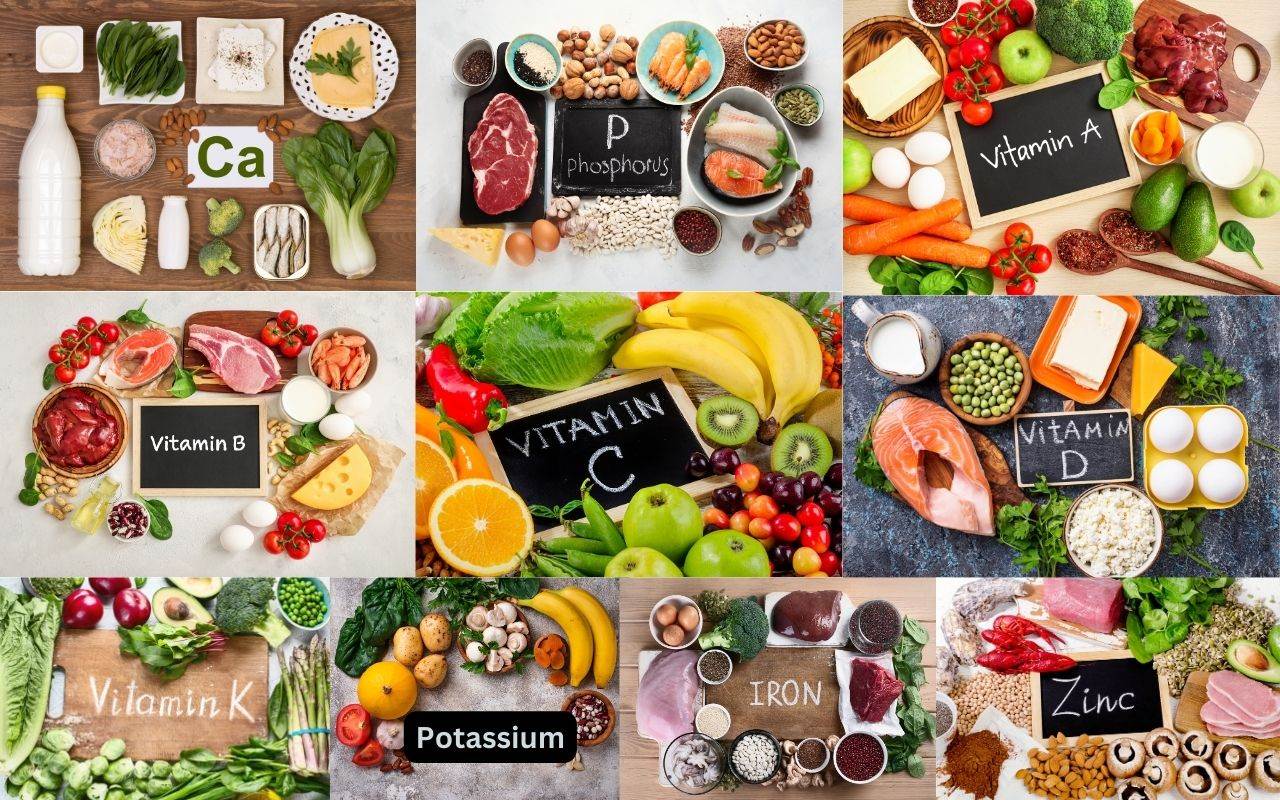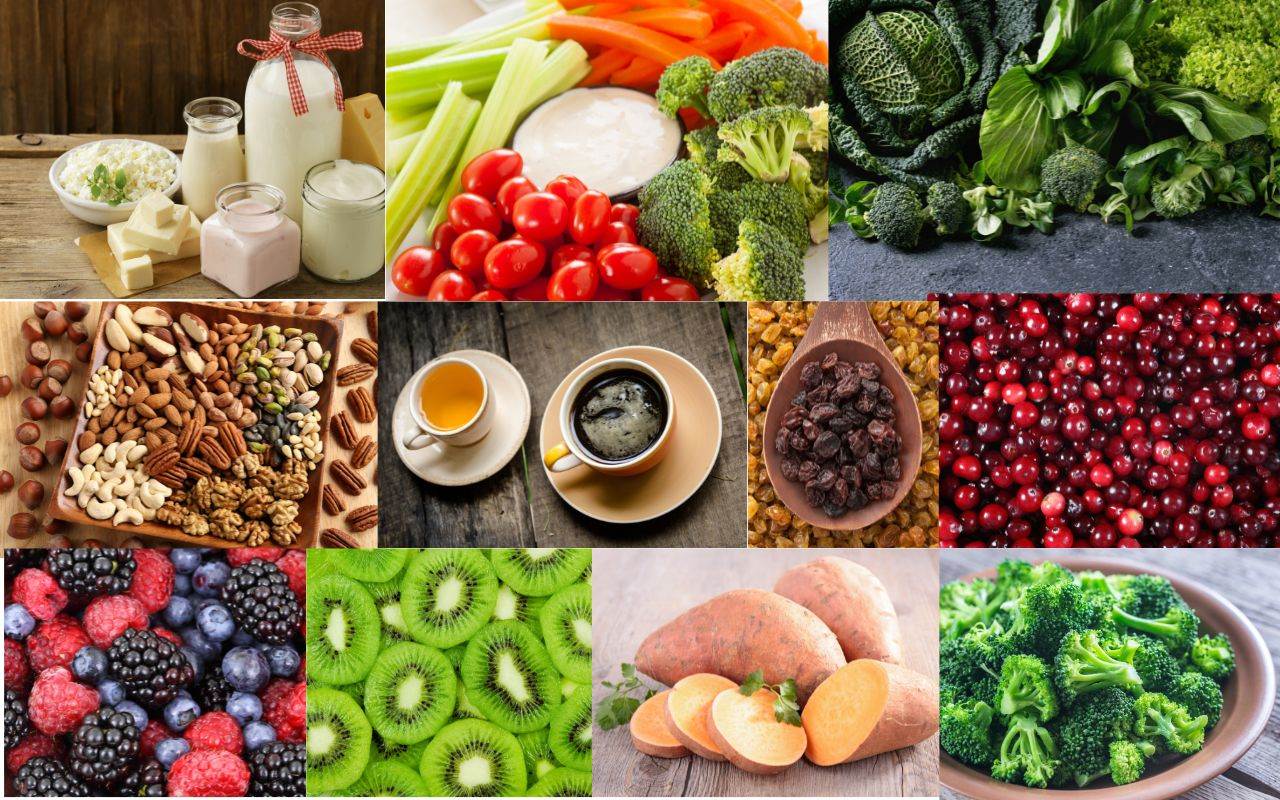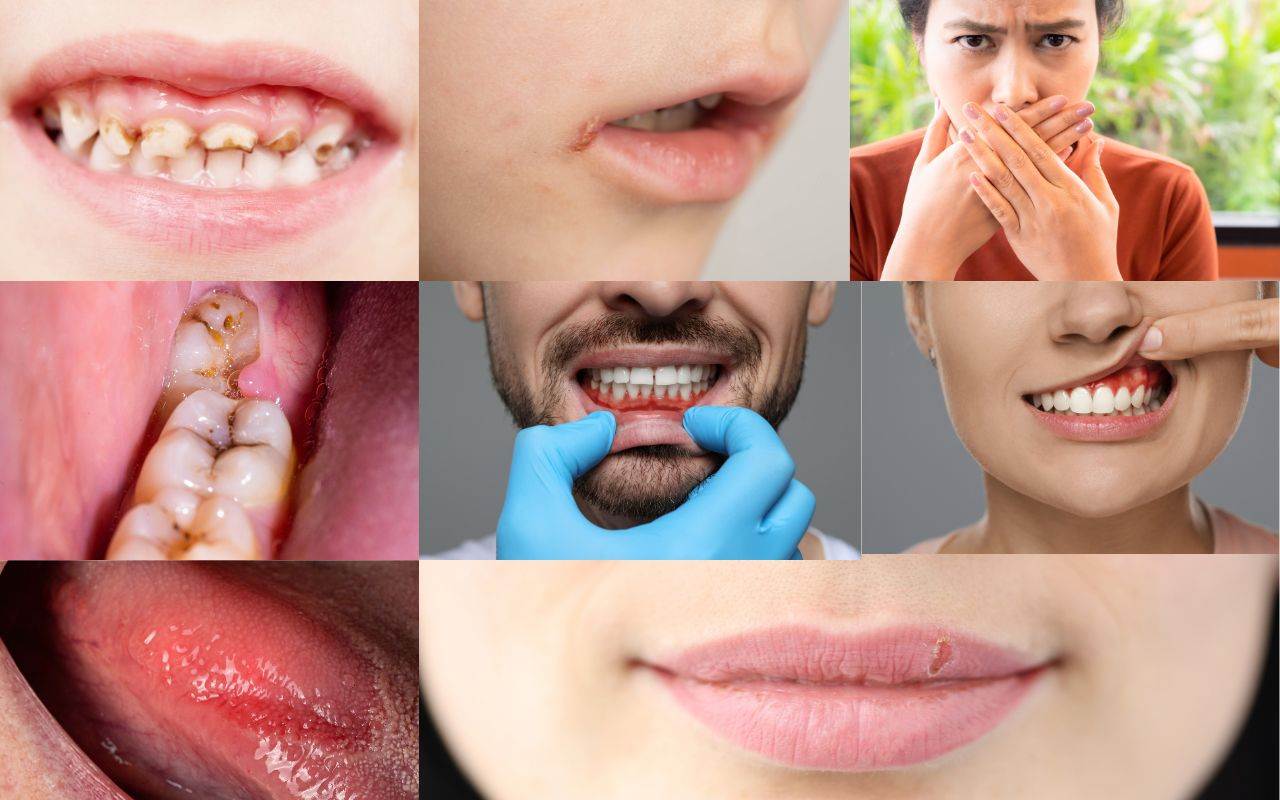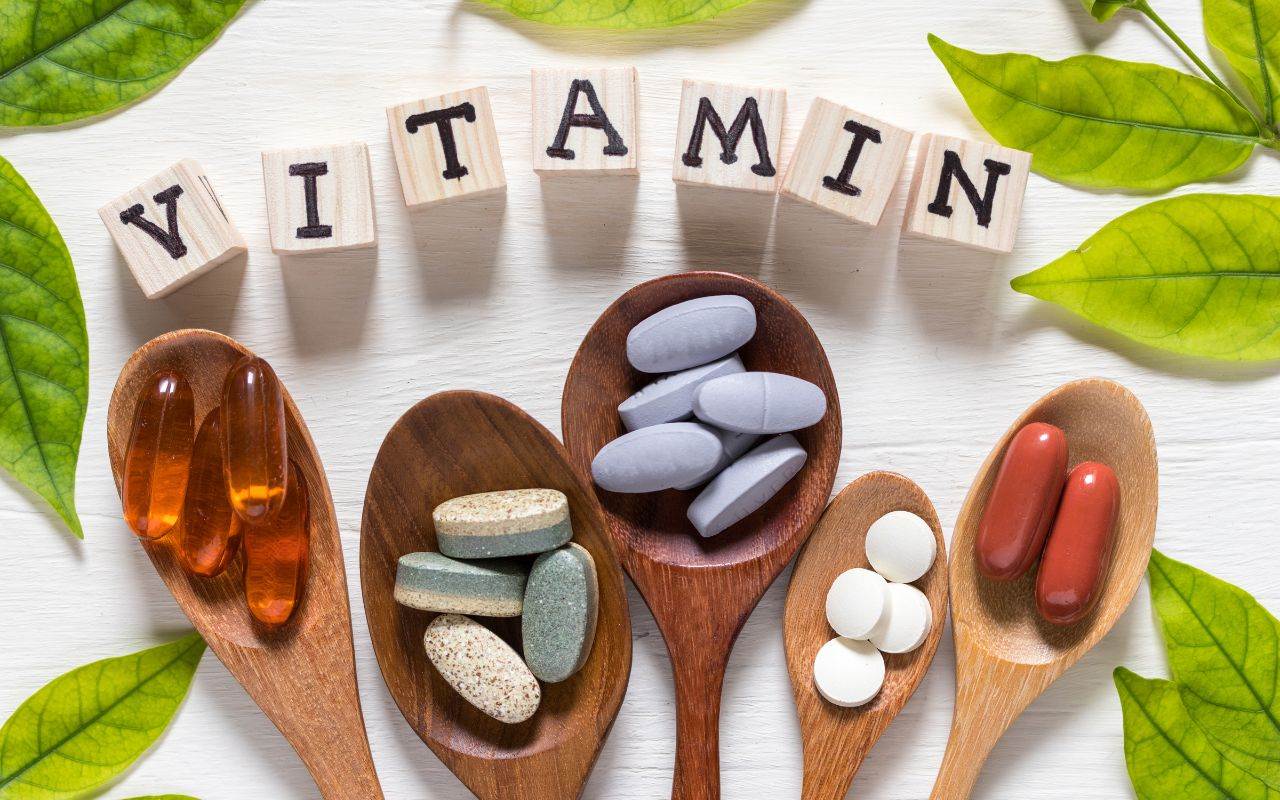We all know calcium is important for strong teeth and bones. However, have you ever wondered what other vitamins and minerals are important for healthy teeth and gums? Here we look at the best vitamins and minerals for teeth and oral health, why they are important, and the foods and supplements that provide excellent sources. We also look at signs of vitamin deficiencies you can look for in your mouth.
How Do Vitamins And Minerals Affect Teeth?

Well-balanced meals provide proper nutrition for optimal oral health. When your diet lacks essential vitamins and minerals, it impacts your oral health in several ways:
- Your mouth has trouble fighting infections
- Your mouth doesn’t recover from infections caused by sores, cuts, gum disease, etc., because it can’t effectively renew and repair tissue
- Issues in the mouth increase the risk of gum disease or gum infections if you already have early signs of periodontal disease
- Poor food choices can weaken your teeth and increase the risk of decay or gum disease
As you can see, a nutrient-dense diet including sufficient levels of vitamins and minerals are essential for healthy gums and teeth.
What Vitamins And Minerals Do You Need For Healthy Teeth And Gums?

The best vitamins and minerals for teeth and gums include:
- Calcium: Calcium is a mineral that supports the growth and maintenance of healthy teeth and bones. It keeps teeth strong and maintains healthy enamel production. Without calcium, teeth and enamel weaken, increasing the risk of cavities, decay, and damage.
- Phosphorus: Phosphorus is also needed to mineralize the teeth and improve the formation of enamel. Without this mineral, you can’t produce the hydroxyapatite needed to harden teeth.
- Vitamin A: Vitamin A is required for proper tooth development, as well as maintaining healthy “oral mucosa” to reduce the risk of mouth infections and sores.
- B Vitamins: There are different types of vitamin B, all helping to reduce the risk of ulcers and mouth sores.
- Vitamin C: Vitamin C is an antioxidant to maintain gum health. Without enough vitamin C, gums can bleed more easily and become inflamed.
- Vitamin D: Vitamin D also works along with vitamin C, improving the absorption of minerals like calcium and phosphorus. A deficiency in vitamin D interferes with absorption leading to tooth weakening and an increased risk of decay.
- Vitamin K: Vitamin K is needed to activate important proteins that regulate calcium in the body, which we know is needed for healthy teeth. It also reduces the risk of bone loss in the jaw as we age. If you suffer from severe gum disease, Vitamin K can help with blood clotting to reduce the severity of bleeding gums.
- Potassium: Calcium and potassium reduce the risk of tooth loss.
- Iron: Iron deficiency impacts the delivery of oxygen to the gums and mouth, which can cause tongue issues as well as gum infections.
- Zinc: Zinc is naturally found in saliva and dental enamel, playing a key role in supporting teeth formation and healthy oral mucosa.
Best Food Sources Of Vitamins And Minerals For Teeth

To ensure you are getting enough vitamins and minerals in your diet, you can enjoy more of these teeth- and gum-healthy foods:
- Dairy: Cheese, milk, and yogurt are excellent sources of calcium. Cheese also contains phosphate to maintain pH levels in the mouth. Yogurt is a probiotic that helps maintain a healthy oral microbiome. Your microbiome needs a balance of healthy bacteria in the mouth to fight infections and inflammation caused by unhealthy bacteria. Poor balance of your oral microbiome causes bad breath, decay, and gum disease.
- Crunchy vegetables: Crunchy veggies like celery and carrots help stimulate saliva flow and wash away bacteria and debris. They also contain vitamins and minerals, including vitamin C and calcium.
- Leafy greens: Greens like kale and spinach have calcium and vitamins, as well as folic acid, which all contribute to excellent oral health.
- Nuts: Nuts such as almonds are an excellent source of calcium, phosphorous, and vitamin D. Walnuts are a powerhouse that include fiber, folic acid, iron, thiamine, magnesium, niacin, vitamin E, vitamin B6, potassium, and zinc.
- Tea and coffee: These popular beverages contain naturally occurring chemicals called polyphenols, an antioxidant that helps fight cell damage, reduce inflammation, and help prevent oral cancers.
- Cranberries: Cranberries are rich in polyphenols but also help stop the formation of plaque. Choose fresh berries to avoid unnecessary sugars in packaged dry fruit products.
- Raisins: Although in general you should avoid dried fruits, raisins help fight tooth decay due to the phytochemical oleanolic acid, which helps inhibit the growth of cavity-causing Streptococcus mutans and Porphyromonas gingivalis, which causes gum disease.
- Berries: Berries like strawberries are high in vitamin C, with the benefit of antioxidant properties that can help repair collagen in the dentin of teeth. Strawberries also contain a natural teeth whitener, malic acid.
- Broccoli: Broccoli is like nature’s toothbrush, keeping teeth and gums healthy. It is also packed with vitamins C and K, as well as a good amount of calcium to help support bone health.
- Kiwis: Packed with vitamin C, kiwis also boost immunity to help fight tooth decay.
- Sweet Potatoes: This cheerful tuber is packed with vitamin A for healthy mucous membranes and gums. It also maintains keratin, which is required for tooth enamel.
Symptoms Of Vitamin Deficiency In Oral Health

Symptoms of vitamin deficiency in the mouth include:
- Impaired tooth formation in children
- Enamel hypoplasia which causes pits, grooves, or missing areas of enamel
- Cracked lips
- Angular cheilitis, which causes inflammation in the corners of the mouth
- Inflammation of the tongue
- Ulcerative gingivitis
- Periodontal disease
- A burning sore tongue
- Bad breath
- Bleeding gums
- Mouth sores and ulcers
- Increased cavities, pits, and caries
- A change in the pulp horns
- Abnormal alveolar bone patterns
- Hypo-mineralization
- Salivary gland dysfunction
As you can see, a lack of proper nutrients and vitamins has a serious impact on your oral health. Although the symptoms above can be related to other underlying issues, improving your diet for optimal vitamin and mineral intake can help you maintain healthy teeth and gums.
What Supplements Are Good For Oral Health?

If you tend to eat a less-than-ideal diet, you can talk to your doctor about taking the following supplements:
- Calcium
- Phosphorus
- Vitamin D
- Vitamin C
- Vitamin A
It’s important to speak to your dentist or doctor to ensure you use supplements properly and don’t experience adverse effects related to other medications you are taking.
Call us at 905-775-5307, or click here to request an appointment.
